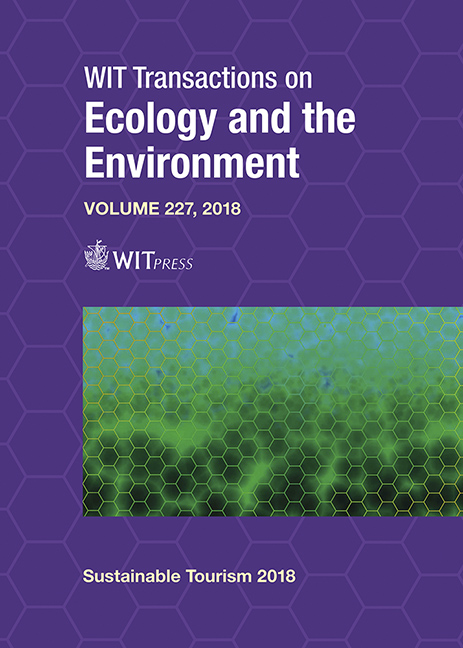APPLICATION OF THE BAYESIAN DSGE MODEL TO THE INTERNATIONAL TOURISM SECTOR: EVIDENCE FROM THAILAND’S ECONOMIC CYCLE
Price
Free (open access)
Transaction
Volume
227
Pages
12
Page Range
257 - 268
Published
2018
Paper DOI
10.2495/ST180241
Copyright
WIT Press
Author(s)
SATAWAT WANNAPAN, CHUKIAT CHAIBOONSRI, SONGSAK SRIBOONCHITTA
Abstract
This paper is intended for clarifying and forecasting the dynamic structural components inside the relationship between tourism income and economic cycling parameters. Quarterly time-series variables such as Thailand tourism revenues and gross domestic products are collected during the period of 1997 to 2016. The simulation methods using the Marko Chain Monte-Carlo approach (MCMC) and Metropolis–Hasting algorithm (MH) which are Bayesian seasonal unit-root testing (B-HEGY), Markov Switching Bayesian VAR (MSBVAR), and Bayesian Dynamic Stochastic General Equilibrium modelling (B-DSGE). Empirically, the results estimated by the MSBVAR model strongly confirm that the business cycles of Thailand tourism are divided into two stages based on business cycle facts, which are in high-season and low-season periods. From the results of the B-DSGE model, the outcomes represent both capital and labour factors of tourism sectors in high-seasonal moments that are positive for Thailand economic expansions. This can be explained that there is no anxiety and any increments of tourism revenues that could lead to systematically boot up employments in economy system. Tourism policies should be implemented for extending high-season moments for as long as possible. Conversely, the results of the dynamic simulated model show that low-seasonal periods negatively cause fluctuations in the economic system, especially the sudden shut down of labour sectors. Therefore, training programs for skilled labour improving in service sectors and technology adaptations should be intensively activated. Accordingly, changing low-season periods to high-seasonal moments is the main purpose that policy makers should focus on.
Keywords
Thailand tourism revenue, RBC model, simulation models, Bayesian inference, Bayesian- HEGY test, Bayesian-MSVAR model, Bayesian-DSGE model





